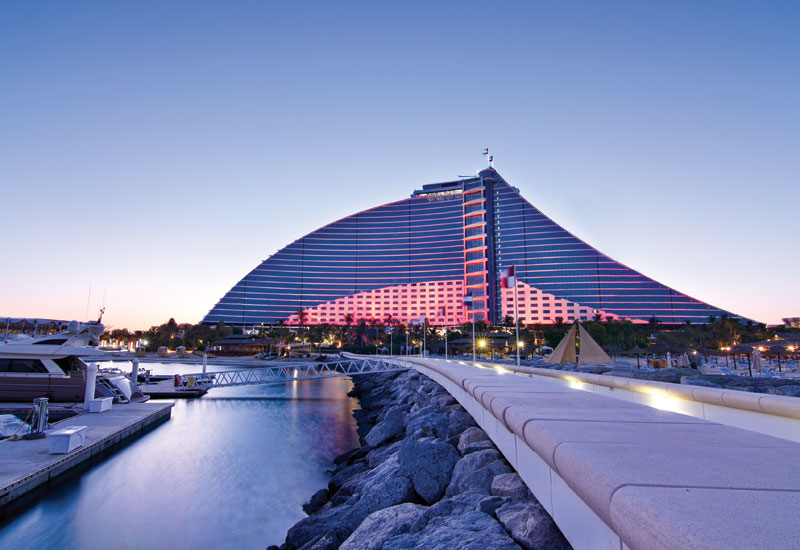 Jumeirah Beach Hotel still has a degree of flexibility in selecting products, as part of Jumeirah's 'Stay Different' philosophy.
Jumeirah Beach Hotel still has a degree of flexibility in selecting products, as part of Jumeirah's 'Stay Different' philosophy.
Today, Jumeirah Group’s KPIs include colleague development, compliance with corporate governance, and as per its supplier evaluation process, all of its strategic business partners have to be 99% compliant by the end of the year. Jumeirah’s corporate responsibility programme takes this a step further by giving back to the community, adds Bastaki.
“We generally prefer a local supplier to support the local economy. Part of our corporate responsibility programme focuses on increasing the contribution of Sheikh Mohammed Bin Rashid Establishment for Young Business Leaders (SME) businesses in our supplier base.
We do this by working with local suppliers for them to be able to reach the level where they would have the capability to be considered a Jumeirah Group supplier. We now have up to 35 local suppliers in our supplier base who are part of Dubai SME,” he reveals.

| Advertisement |
INDUSTRY IMPACT
Jumeirah Group’s procurement strategy becomes all the more interesting in light of results of this year’s edition of the Hotelier Middle East Supplier Survey, published in the March 2014 issue.
It revealed that almost 55% of hotel suppliers have been asked to offer an incentive by a hotel employee, and that 72.6% of suppliers know of other supply firms using incentives to facilitate their sales efforts, 10% higher than 2013 survey results — implying that not all hoteliers are following such transparent processes. It’s not just Hotelier that has observed such worrying trends either.
According to procurement software suite provider Zycus, in an article entitled The State of Middle East Purchasing published in Q4 2013, the author stated: “Ten years ago, companies in the Middle East viewed procurement as an administrative function ... [with] no strategic approach to choosing the best suppliers. Unfortunately, this approach to procurement is still dominant in … pretty much all sectors except oil and gas.”
The responsibility of such figures and predictions falls predominately on the leadership of any organisation, and unless such issues are proactively tackled, the problem is only going to get worse. It is perhaps time for the hospitality industry, one that is rapidly maturing, to progressively start viewing procurement departments as a more strategic role in the development of businesses.
This would unlock several opportunities, part of which includes an undeniable increase in bottom line, a high level of compliance, and overall efficiency of organisations. Jumeirah Group today stands as an example of what driving change can result in.
About the Author:
Wissam El Cheikh Hassan is the managing partner of Provident Solutions Ltd, a hospitality management consulting start up with focus on efficiency and procurement solutions. Email: wissam@providentsolutionsltd.com.








 Search our database of more than 2,700 industry companies
Search our database of more than 2,700 industry companies









